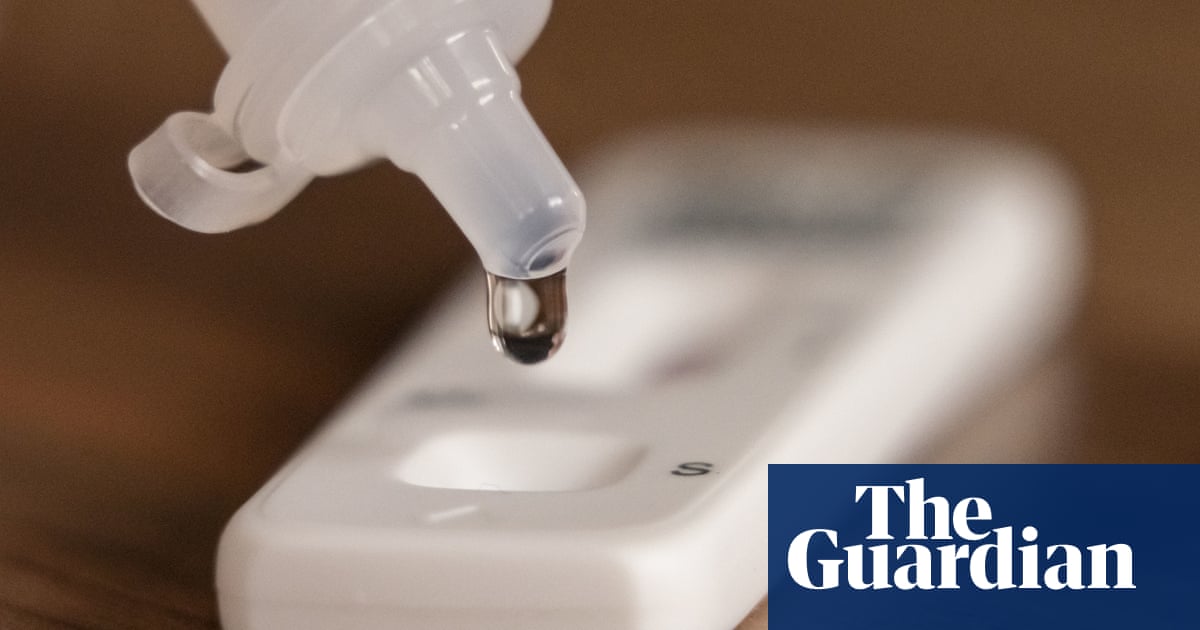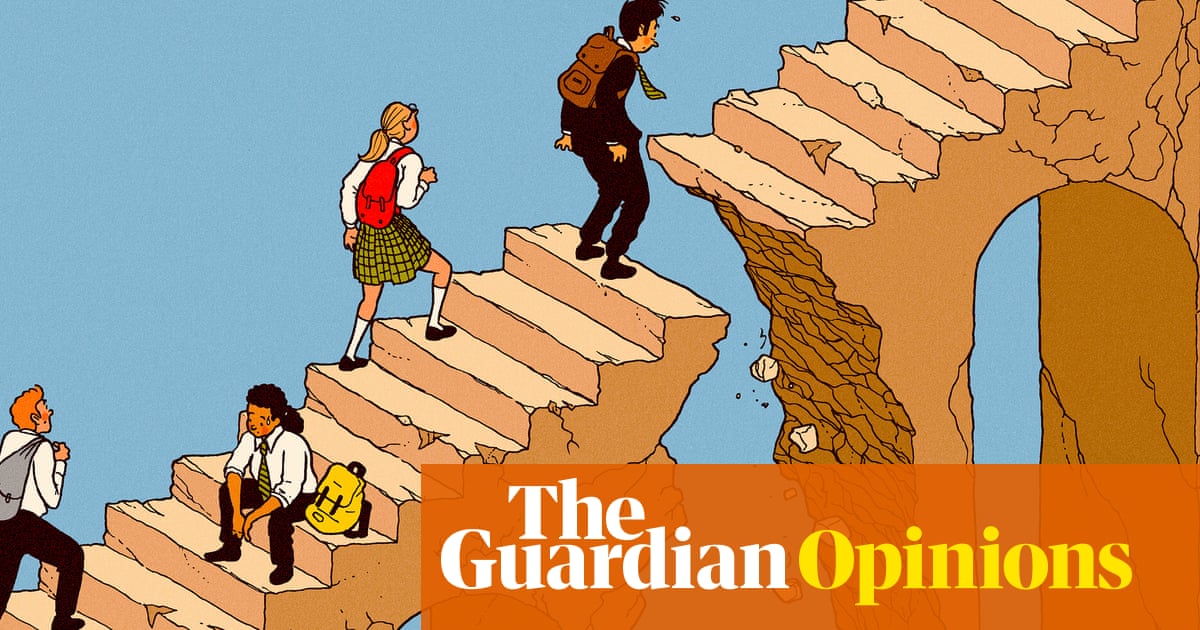
owerful people like to point out that Covid-19 does not discriminate. Indeed, the rain, too, does not discriminate against those it falls on. But one’s ability to stay dry beneath a downpour is dependent on the availability of an umbrella. Similarly, our access to security in a pandemic depends on the safety net of the state. Umbrellas can be shared or withheld. Those without one can be listened to – or ignored.
I’m a youth worker, and throughout 2020 I have mentored young people from black African and Caribbean, and south Asian origins who mostly live in population-dense social housing. More often than not, their parents worked on the frontline throughout the national lockdown – carers, bus drivers, NHS receptionists, cleaners – or have pre-existing health conditions. As part of a book I’m writing, I have also interviewed many community members, including pastors, rappers and youth club managers, who fall into these same demographic groups.
In doing this, I’ve detected a melancholic harmony among these voices – an awareness that, while the virus is affecting everyone, everywhere, it is affecting particular people disproportionately. It has been reported widely that race is a metric that can illuminate this disparity. In the summer, for example, 36% of critically ill Covid-19 patients were from an ethnic minority group, despite representing only 13% of the general population. This disproportionality can be subtly inferred from the anecdotes I’ve heard: grandparents died, uncles were denied operations, friends were misdiagnosed. My impression that race is relevant to the clarity of this picture is, of course, in some way explained by the relative multiculturalism of the capital, where I live. But still.
The Racial Disparity Unit (RDU), led by the equalities minister, Kemi Badenoch, recently published its first quarterly report addressing the repeatedly proven high impact of Covid-19 on ethnic minorities in the UK. It made 13 recommendations for action, including the mandatory recording of ethnicity as part of the death certification process, the monitoring of how policies affect people from ethnic minorities and the forging of culturally sensitive communications with relevant communities about the virus. All of them have been accepted by the prime minister. At a glance, this appears positive. The devil, however, is in the detail.
The report explains the disproportionality faced by black and Asian groups – particularly African, Bangladeshi and Pakistani men – by focusing on factors such as people’s occupations, where they live and pre-existing health conditions. In other words, it acknowledges that non-white people are dying at a higher rate and puts this down to the fact that they tend to live in particular circumstances such as overcrowded households, or work in jobs that have greater exposure to the public.
Yet, while presenting the report, Dr Raghib Ali, a recently appointed government adviser, suggested that ethnicity should no longer be used as a focal point in this conversation. “The problem with focusing on ethnicity as a risk factor is that it misses the very large number of non-ethnic minority groups, so whites basically, who also live in deprived areas and overcrowded housing, and with high-risk occupations,” he said. Ethnic difference is being taken as a stand-in for other inequalities, but not a potential source of inequality in and of itself.
Rewind the clock to early June. The torches of anti-racist protest were aflame in cities across the world when Public Health England (PHE) released its first report into the disproportionate impact of Covid-19 on black, Asian and minority ethnic (BAME) groups. Within days, another report was leaked, revealing omitted recommendations gleaned from interviews with 4,000 individuals and organisations representing a broad range of issues faced by ethnic minority communities to capture their experiences of the NHS. After public outrage – “a usual whitewash!” tweeted Dr Kailash Chand, the honorary vice-president of the British Medical Association – the recommendations were added to the original report.
They presented a range of factors as potential drivers of the virus’s disproportionate effect: experiences of racism, meaning BAME workers were less likely to seek care or demand better personal protective equipment, and a historical lack of trust between patients and the NHS due to prior culturally insensitive interactions were among them. The word “racism” featured 24 times in the 69-page document.
Yet in the RDU’s recent report the word is nowhere to be seen. Conceding the existence of any form of racism, structural or otherwise, seems to be too much to ask from this government. Speaking at a Science Media Centre briefing, Ali said: “The second Public Health England report said that racism may contribute to some of these disparities. But they didn’t present any objective evidence for that – it was based really on the views of 4,000 stakeholders … There is certainly no evidence … that blacks and south Asians were treated any differently once they reached hospital. I don’t think structural racism is a reasonable explanation. Those that put it forward need to provide evidence.”
This looks like colour-blindness being employed to explain away legitimate claims of prejudice. Contrary to Ali’s view, such a comprehensive collection of testimonies should itself be taken as evidence – at least enough to warrant further investigation by the government.
The RDU might not be moved to act by the intertwined accounts of thousands of people. But given the direction that Britain has been headed in for several years – in many ways progressive, but in other ways regressive – is it really that difficult to envision how racism is playing a role here? Ours is a society in which a mere dance seeking to express for a few seconds that the lives of black people matter can inspire tens of thousands of complaints from outraged sofa-dwellers. It is where learning about our empire’s centuries-long, world-making venture of economic extortion and subjugation still falls behind the indulgence of Henry VIII as a priority in our history classrooms. It is where our prime minister himself has an established history of racist and homophobic journalism.
The neoliberal emphasis on individualism and quantifying life has become so entrenched that the shared experiences of historically oppressed minority groups are subsumed and forgotten. The fact that so many of those consulted by PHE cited racism as a problem – plenty of reports over decades about links between discrimination and health inequalities exist in the literature, too – but no data has been sought to prove it, should not mean it is simply wiped from the government’s agenda.
Fortunately, all is not lost. In another report, entitled An Avoidable Crisis, Dame Doreen Lawrence said that people belonging to ethnic minorities had been “overexposed, underprotected, stigmatised and overlooked”, adding that this had “been generations in the making”. As we approach winter, those without umbrellas – who belong to all races and creeds – will keep getting wetter. Their voices, and the cause for a communal shelter, need championing more than ever.
• Ciaran Thapar is the founder of the youth charity RoadWorks. His first book, Cut Short, is forthcoming from Penguin Viking UK












